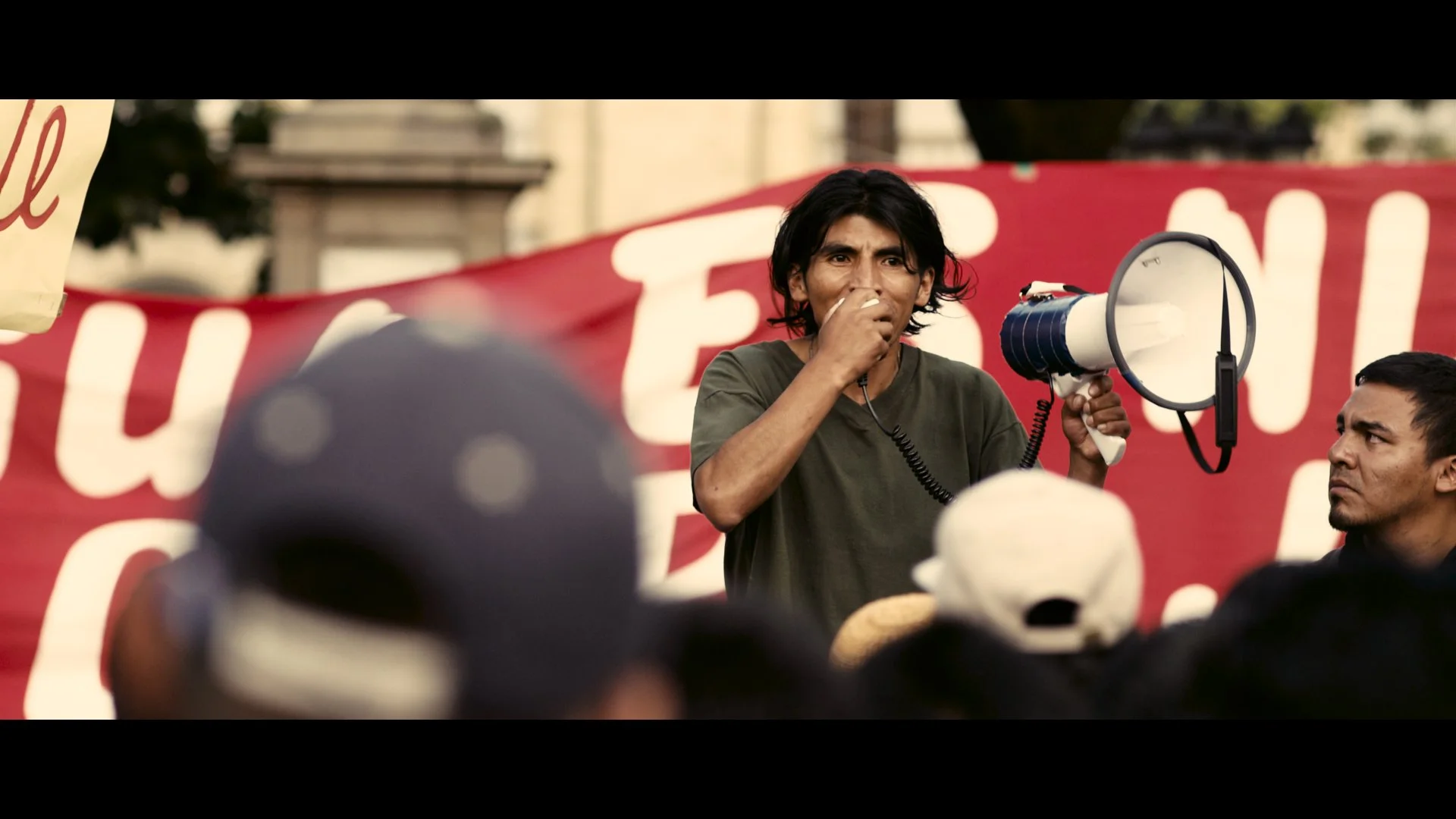También La Lluvia
Nearly a year ago I caught the trailer for a new Spanish film called También La Lluvia, which made a strong impression on me. This weekend, having added it to our Netflix queue a while ago, Katie and I finally watched it.
If you’ve seen The Mission or, more recently, Of Gods and Men, this one hits on similar themes. It’s a movie about the making of a movie about the arrival of Columbus in the so-called “New World.” While The Mission is based on historical events that took place in South America in the 1750s involving Jesuit missionaries and the uneasy alliance between colonialism and the Church, También La Lluvia brings those themes to real events closer the present day, while also digging back further, to 1492.
Here’s the trailer:
También La Lluvia takes place not in the Caribbean — where Columbus actually landed — but in Bolivia, we learn, in order to save on production costs by hiring extras for pennies among the indigenous Quechua people in Cochabamba. The indigenous Taino people Columbus encountered, of course, are mostly long gone. There’s a sad mix of irony, satire, and powerful symbolism woven throughout the film, and this is just one example.
This film is hard to watch in the sense that it rings so true, and it doesn’t resolve particularly neatly. Life is not all of a sudden wonderful for indigenous Bolivians of Cochabamba and elsewhere in the Americas, and by the end of the film we’re left wishing things were different — our past, our present, our future.
It’s hard to pinpoint who the main character in the movie is: those playing the director and producer are up there, as is a Quechua character named Daniel. But there’s an interesting dynamic at play between two others. Christopher Columbus looms large and Bartolome de las Casas does as well, and fairly early on we conclude that the latter, who stands up for the human dignity of indigenous people, is the protagonist while the former, who doesn’t share that sense of concern, is the antagonist.
The director character, played by Gael Garcia Bernal, cares about the issues enough to want to tell the story (though he admits he’s in it largely for the money). When water riots break out in Cochabamba, threatening to get in the way of the filming, he finally sees some of the parallels between the story of long ago and of today, and he’s willing to begin to stand up for what’s right. At one point he pushes the mayor of Cochabomba to consider the plight of those protesting the new water policies that would result in 300% cost increases. How are they supposed to afford that kind of expense, he asks, living on $2 a day? The mayor responds that he happens to know that’s what the film was paying the extras. The point is, the director and his crew, while telling the story of Bartolome, who stood up to injustice, are still inescapably part of the problem, though many of them scarcely seem aware of it.
Self-righteousness is pervasive and it takes many forms.
As for Columbus and Bartolome, when things turn dicey, the Bartolome actor is begging to leave, while the Columbus actor walks over to a pick-up truck bed where an indigenous man has just been beaten by a military officer, and at the risk of being clubbed as well, he offers the beaten man a drink of water. Reflecting on it now, it’s a profound Good Samaritan scene with the unlikeliest of protagonists. There are so many scenes like that throughout the film.
Having grown up among rural, indigenous people in Latin America myself, and having more recently researched and written about exploitative business practices taking place in their community at their expense, I believe it is imperative as a follower of Christ to call injustice what it is, and so much as I am able, to take the side of the vulnerable and oppressed, not to actively or passively take the side of those who would seek to exploit them against their well-articulated and perfectly justified rights.
But I have also come to realize that the answer isn’t merely to demonize multinational corporations or corrupt governments generally, or to demonize CEOs of particular corporations or certain politicians more specifically. In the age of globalization, there’s plenty of blame to go around, and like Bartolome, we all carry within us contradictions and complicity of our own. But even framing things in terms of “blame” is problematic, given the often fuzzy lines connecting us to our purchases, investments, and lifestyles. It may be more helpful to think in terms of our collective responsibility for those who suffer than to think in overly simplistic terms about who’s to blame. As Christians, even as we seek to do what is just, we must also love mercy, and always seek to walk humbly with our God who has shown us unmerited favor more times than we can count.
God forbid that we become mere fans of heroes like William Wilberforce, Martin Luther King, Desmond Tutu, Bartolome de las Casas, or of Jesus Christ, for that matter, but then when push comes to shove (as it most certainly will), we walk carefully to the other side of the road, side-stepping the need, avoiding all potential pain or loss, while someone we think we have every reason to judge does the right thing, the courageous thing, the costly thing.
I hope you’ll take the time to watch También La Lluvia. It’s not a film for the faint of heart, but neither is life itself when you stop to think about it. We need to wrestle through these issues carefully, with prayer, and in light of what we claim to believe about what is right and true and good.
While demonizing predictable villains isn’t the answer, neither is it right to turn away.
